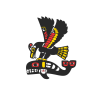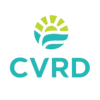NEWS RELEASE
July 6, 2014
For Immediate Release
Community Leaders Meet to Address Drought
On Thursday July 3, Cowichan Watershed Board (CWB) hosted a meeting of community
leaders and key stakeholders to discuss actions and options for responding to current
drought conditions in the area. Local government staff and senior staff, MLA Doug
Routley, Tim Kulchyski of Cowichan Tribes, and representatives from Fisheries and
Oceans Canada, the Ministry of Forests, Lands and Natural Resource Operations
(FLNRO), Island Health, Catalyst Paper (a major water user in the region), and a
several stewardship groups gathered for the meeting.
CVRD Chair and CWB Co-Chair Rob Hutchins described the Cowichan River flow
situation as grave. The combination of a dry spring and low snowpack has led to
Cowichan Lake being almost 40 cm lower that it should be a this time of year. As a
result river flows have been reduced from the 7 cubic metres required in Catalyst
Paper’s Water license to 5 cubic metres per second to try and make the water stored
behind the weir at Cowichan Lake last until the fall rains come.
While the well fields that underlie the lower Cowichan and Koksilah are not currently
threatened impacts of low river flows are serious. Possible impacts of drought that were
discussed at the meeting included:
- water quality -particularly in the area below the Joint Utility Board sewage
lagoons; - damage to fish populations -as the wetted area of the river recedes – including:
stranding, habitat loss, increased competition, temperature stress and if the
drought continues into the fall loss of adult chinook salmon due to inadequate
flows for migration and increased exposure to seal predation; - loss of opportunity for Cowichan people –particularly utilizing the river and fish
and wildlife for ceremonial, food and cultural purposes; and, - economic impacts linked to:
- a forced shutdown of the water dependent Crofton mill,
- reduced recreational opportunities, and
- in the longer term impacts on commercial and sport salmon fisheries.
Other possible impacts discussed included localized well failures, conflict between
people with different priorities for water use and regulatory issues.
Participants also discussed a number of actions undertaken to date.
- Catalyst Paper has asked its 600 employees to come forward with suggestions to
save water and to do their best to conserve water. Management has also begun
to explore the feasibility of pumping water over the weir at Lake Cowichan. - Local governments have implemented Stage 2 watering restrictions and are
monitoring sewage discharge into the river closely. - DFO intends to monitor the Cowichan closely and with Cowichan Tribes make
preparations to truck chinook salmon to spawning grounds as a potential
mitigation measure; - The Cowichan Watershed Board has been rolling out a water conservation
challenge to water providers and public information initiative, kicked off by David
Slade on May 19 at VIU; - Island Health will beef up water quality monitoring as required; and,
- Stewardship groups have been moving juvenile fish that are stranded in sidechannels and pools into the main stem of the river and are participating in public
education initiatives.
FLNRO’s Provincial Water Stewardship Manager Valerie Cameron reported that much
of Vancouver Island is already at Stage 3 and verging on Stage 4 of the Province’s Five
Stage Drought Profile. FLNRO coordinated a provincial government drought planning
session the previous week. Cameron congratulated the meeting participants on their
actions and the collaborative approach being taken in the Cowichan noting that this the
first meeting of its kind to occur in the province this year.
Next steps discussed by the group were:
- Continued monitoring of water levels, and water quality;
- Further exploration of options such as:
- -pumping water over the weir
- – reduction of river flows to 4.5 cubic meters per second (possibly as early
as July 10). - – Ongoing communication among stakeholders and with the media and public;
- – Continuing to pursue a longer term solution.
“By working together, we can act more efficiently and effectively on behalf of the
watershed and our communities,” concluded Rob Hutchins.
Contact:
Rob Hutchins
Co-Chair CWB
250-210-1471
Tim Kulchyski
Board Member CWB
250-732-4895
 Email
Email



